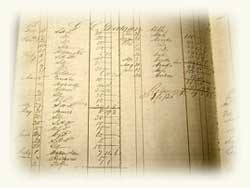• accounting fraud •
|
1 of 23 •  Previous | INDEX | Next Previous | INDEX | Next  |
 Accounting
scandals, or corporate accounting scandals are political
and business scandals which arise with the disclosure
of misdeeds by trusted executives of large public
corporations. Such misdeeds typically involve complex
methods for misusing or misdirecting funds, overstating
revenues, understating expenses, overstating the value
of corporate assets or underreporting the existence
of liabilities, sometimes with the cooperation of
officials in other corporations or affiliates. In
public companies, this type of "creative accounting"
can amount to fraud and investigations are typically
launched by government oversight agencies, such as
the Securities and Exchange Commission (SEC). Like
other forms of white collar fraud, the objective of
accounting fraud is to accomplish a desired result
by deception, trickery, concealment, and/or dishonesty Accounting
scandals, or corporate accounting scandals are political
and business scandals which arise with the disclosure
of misdeeds by trusted executives of large public
corporations. Such misdeeds typically involve complex
methods for misusing or misdirecting funds, overstating
revenues, understating expenses, overstating the value
of corporate assets or underreporting the existence
of liabilities, sometimes with the cooperation of
officials in other corporations or affiliates. In
public companies, this type of "creative accounting"
can amount to fraud and investigations are typically
launched by government oversight agencies, such as
the Securities and Exchange Commission (SEC). Like
other forms of white collar fraud, the objective of
accounting fraud is to accomplish a desired result
by deception, trickery, concealment, and/or dishonesty
Obviously, most accounting fraud takes place to affect
the performance of publicly traded corporations. Along
with securities violations, money laundering charges
may be brought against a defendant. The distinguishing
characteristic placing these offenses into the accounting
world is that the individual charged is an accountant
or agent for an accounting firm and is acting within
the scope of his or her employment. One of the more
famous instances involving accounting fraud is the
collapse of Enron.
The key elements of accounting fraud may be either
violations of federal law under today's applicable
statutes include such acts as: 1) insider trading,
2) buying or selling of securities not registered
with the Securities and Exchange Commission (SEC),
3) willfully making false statements or omissions
of fact in documents filed with the SEC, and/or
4) engaging in interstate communications with prospective
purchasers of securities, where such communications
employ any device, scheme, or artifice to defraud,
or contain false statements or omissions of fact
calculated to mislead or converting money or property
gained from illegal activities into money that appears
to have been legally earned.
How have
the courts defined accounting fraud violations?
Any accountant who administers an audit of an issuer
of securities to which 15 U.S.C. § 78j-1(a)
applies, must keep up all audit or review papers
for a period of 5 years from the end of the fiscal
period in which the audit or review was completed,
under section 1520 18 U.S.C. § 1520(a)(1).
Also,
the Securities and Exchange Commission shall make
known, such rules and regulations, as are reasonably
necessary, relating to the absorption of relevant
records such as documents that form the basis of
an audit or review, memoranda, correspondence, communications,
other documents, and records (including electronic
records) which are created, sent, or received in
connection with an audit or review and contain conclusions,
opinions, analyses, or financial data relating to
such an audit or review, which is conducted by any
accountant who conducts an audit of an issuer of
securities to which 15 U.S.C. § 78j-1(a) applies.
The Commission may, amend or supplement the rules
and regulations that it is required to promulgate
under this section, after proper notice and an opportunity
for comment, in order to ensure that such rules
and regulations efficiently comply with the purposes
of this section.
Possible
Penalties:
The punishment for a knowing of willful violation
of section 1520(a) is a fine, imprisonment for not
more than 10 years, and/or both. 18 U.S.C. §
1520(b).
|

